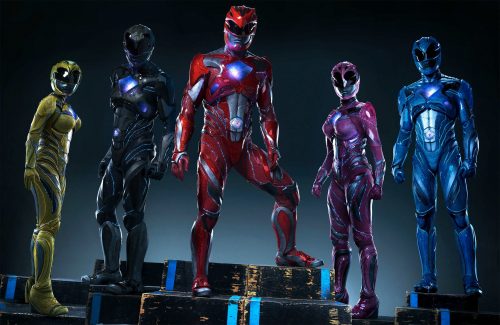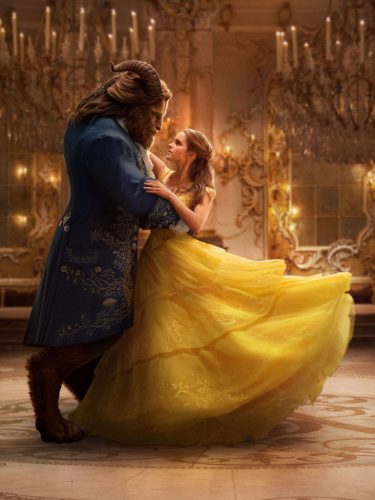 The top three grossing movies in theaters currently are “Beauty in the Beast,” “Power Rangers” and “Kong: Skull Island,” and despite making truckloads of money, one other fact unites these three films, they are all remakes or reboots of classic franchises.
The top three grossing movies in theaters currently are “Beauty in the Beast,” “Power Rangers” and “Kong: Skull Island,” and despite making truckloads of money, one other fact unites these three films, they are all remakes or reboots of classic franchises.
“Beauty and the Beast” is obviously the remake to the 1991 Disney animated classic, “Power Rangers” ruled both television programming and movie theaters during the ’90s, and Kong is the latest in a long line of remakes and spinoffs of the original 1933 classic, “King Kong.”
This is no uncommon occurrence. The movie market finds itself increasingly flooded by sequels, reboots or remakes of classic films or even some that were not even that good in the first place.
This practice of continuously recycling ideas from the industry has increasingly grinded audiences the wrong way over the past years, but at this point some have begun to accept it as something that will always be there.
“As a film fan, obviously, it should be about making good movies, but I know every thing is a business. Every great movie that in anyway can be rebooted, is going to be rebooted,” said DePaul student Sawyer Schwartz.
When asked about the upcoming 2017 sequel to “Blade Runner,” Schwartz had an immediate response.

“Obviously, it’s not going to be as good as the original,” Schwartz said.
Despite this skepticism many fans share, these movies continue to come out and make money. DePaul media and cinema studies professor Jef Burnham has a theory on the recycling being done in the movie industry.
“I had a friend tell me this the other day. He said, ‘I watched this really old movie last week’(…) turns out it was from like ’98 or ’99,” Burnham said. “And movies had already been around for over 100 years at that point. So, from a cultural perspective, most audiences, especially if they’re not cinephiles, are just watching whatever’s new (…) recency, recency is everything.”
It seems audiences will flock to see whatever is the hot new thing and the revenue numbers certainly back that up. In 2015, reboots “Jurassic World” and “Star Wars: Force Awakens” became the fourth and third highest grossing movies of all time respectively.
Every new and original movie lacks the recognition of old favorites and thus carries an inherent risk. These seemingly money-grabbing, non-original ideas are what make taking risks possible. In 2012, the all-powerful Disney had one of the biggest box office bombs of all time in “John Carter,” losing an estimated $125 million. Maybe a “Star Wars” reboot was just what they needed to offset that.
“Remakes and reboots are just a necessary byproduct of the conglomerations of corporate entities that are drawing in all of these smaller companies and needing to recoup more and more money on their investment,” Burnham said. “When you hear about these tentpole franchises like Disney and their ‘Star Wars’ and their Marvel. That tent pole is not just ‘Oh, it’s really profitable,’ it is literally holding up the company in some ways.”

While reboots and remakes are undeniably less risky and tend be a safer and more profitable bet, some remakes of the most iconic films have bombed heavily at the box office. 2016’s “Ben-Hur” failed to make a positive revenue back as it grossed only $94.1 million worldwide against its $100 million production budget, which doesn’t include any money spent on marketing or distribution. The box office failure comes to a surprise as “Ben-Hur” has been remade four times since its first presence on screen in 1907 as a silent film — with the 1959 film winning a record of 11 Academy Awards.
Even though old movies will constantly be getting remade in the coming years, DePaul professor Douglas Long, a theater director and teacher of a class on the films of Alfred Hitchcock, believes that nothing can really replace the originals.
“Every film reflects the time in which it was made, as far as movies from the ‘30s, ’40s, ’50s, there is this glamour about them,” Long said. “But I think it’s just certain styles that the studios instituted, certain levels of politeness or, like I said, glamour, which doesn’t seem so important in an era now that embraces realism.”
While remakes are a relatively risk-free output that will continue to be made by the big film companies, the great thing about the digital world is if a viewer really loves that old style Long talked about, those classics are not going anywhere.
This isn’t to say all remakes aren’t inherently bad or worse than their original. Schwartz and his roommate Chris Nixon both agreed on one good reboot.
“I feel like ‘Star Wars’ did a great job,” Nixon said. “They had essentially the exact same plot line, but they put new characters into it and kind of retired the old ones in a respectable fashion. And after ‘Force Awakens’ they have a lot of different directions to go.”
“I think the way ‘Star Wars’ is doing it is the respectable way to do it,” Schwartz said. “Just continues the story, really.”
So, while the prospect of never ending sequels and remakes is an easy one to hate, it is certainly not going away for many reasons any time soon.
Maybe it is time to just accept these films for what they are even though it may be tiring to hear about someone’s favorite movies being remade every year.
Hollywood may lack original ideas lately but if people continue to routinely show up in theater seats for the latest remake or reboot, don’t expect the trend to change.



